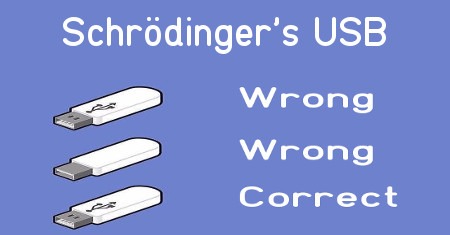Backups, have you got them?

Over time Hard Drives, SSD and USB Flash Drives degrade and eventually stop working. When is the last time you backed up your data?
In the last two weeks, I have had calls from several people saying their USB Flash Drive or external hard drive has stopped working or files have gone missing. Unfortunately, despite USB drives claiming to retain data for 10 years, this is not always the case, many other factors cause your drives to wear out before the end of their expected lifespan.
Hard drives consist of many moving parts which read or write your files to one or magnetic platters. Any of these parts can cease up or degrade over time making your files inaccessible. It’s not uncommon to backup files to an external hard drive and put it away for safe keeping only to find out when you need it that the moving parts are no longer moving and your files are unavailable.
SSDs and Flash Drive while they don’t have the same moving parts still have chips and circuits that degrade over time and you run the same risk of losing your data.
In addition to the internal issues experienced with digital storage devices, there are other factors which may cause your drives to stop working sooner than expected.
- People lose things, it’s only a matter of time before something gets lost, whether your out and about and your thumb drive falls out of your pocket or you simply misplace your drive at home.
- Wear and tear, leaving a drive connected to your computer will generally keep your hard drive spinning (depending on your power management settings) but when it does spin down it may not restart. Leaving a drive disconnected has the same issue. The same is true for flash drives and SSDs, keeping them powered can inflict undesired wear and tear but leaving them disconnected can cause its own issues with maintaining the stability of the data on the drive.
- USB connections break, USB ports are supposed to last up to 10,000 plug/unplug cycles depending on the type of USB connection used. Unfortunately, the tiny surface mount connections on the circuit boards are not always aware of this and can break due to repeated connection and disconnections, not to mention those times when something drops on your thumb drive while it is connected to your computer and snaps it clean off.
- Dust and dirt can get into the connectors while the drive is in your bag or pocket, you may not even notice it is there. This dirt and dust can wear away at the connectors and internal circuitry during the course of normal use thus killing the drive.
- Ransomware, as I’m sure your all aware ransomware encrypts your files making them inaccessible until you pay the ransom. According to a recent survey of 160,000 small to mid-size businesses 6% of these were affected by ransomware with some businesses being targeted multiple times in one day or week.
What can you do about it?
There are many options when it comes to backups and each case is different, there are many online and offline options available and we can help you decide which option is best for your situation. Some of the options available include:
- Cloud backups, need to back up lots of data from one or more computers and would rather set and forget? Cloud backups may be just what you are after. With backup options starting from just $6 USD per computer per month for home users and $10 USD per computer per month for business users you can backup unlimited data to the cloud with peace of mind that your files are safe.
- Local backups, need to backup lots of files but don’t have a great internet connection or don’t like the idea of putting your files in the cloud? Many options exist for those who don’t want to use the cloud, adequate backups can be setup with multiple USB hard drive (to prevent the failure of one drive ruining your backup system) or central storage to allow multiple computer to backup to one location then transferred to an external hard drive in case ransomware strikes.
- Hybrid backups, backup your files both locally and to the cloud. Not only do you have the peace of mind of the cloud backups you also have a copy of your data securely saved and locally accessible just in case.
While no system is 100% fool proof it is possible to protect yourself and your data before it’s too late. The average cost of data recovery, by Australia’s most experienced data recovery company, for a single SSD, Flash Drive or Hard Drive starts around $550 but can be significantly more if your recovery is more complex. Hardley seems worth it considering an online backup of your important data costs so little.
